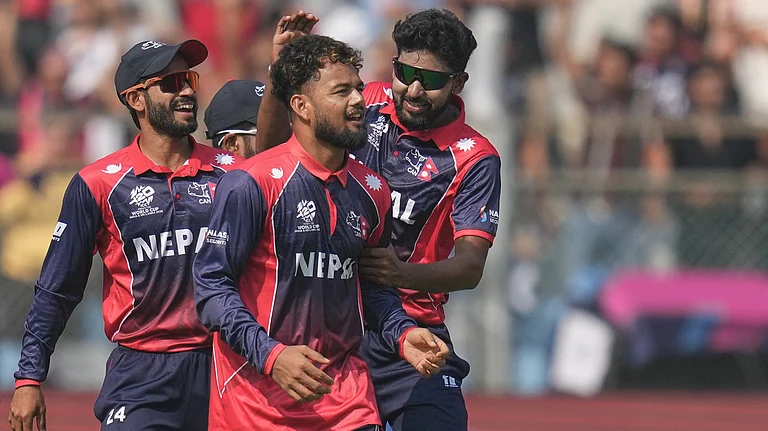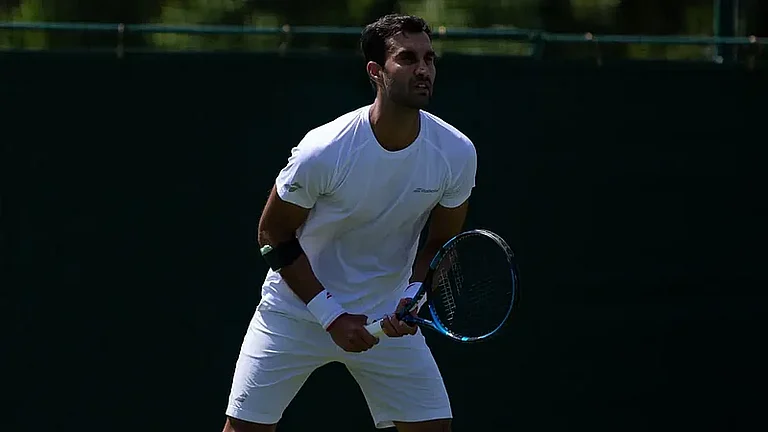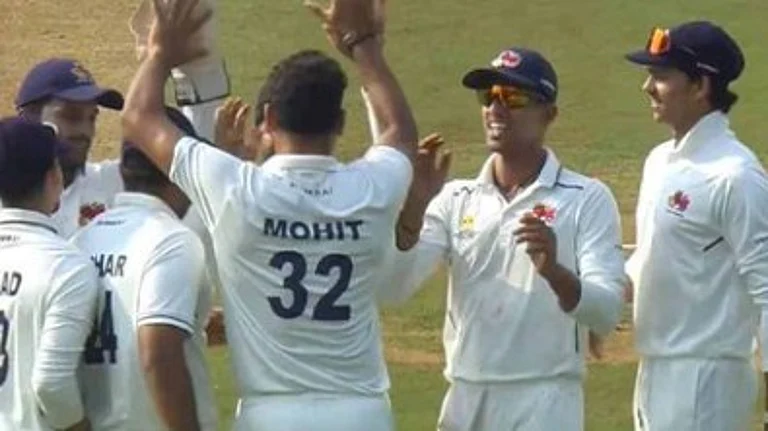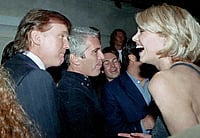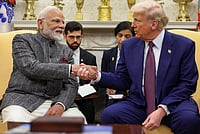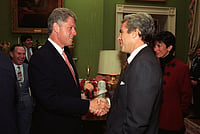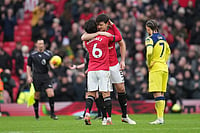One of the two rockets that were fired from an unknown source had landed on the mosque when the faithful were offering Friday prayers during Ramzan. The reaction was strong and swift. Islamabad went to town with it, portraying India as an aggressor. The local and foreign media in Pakistan were taken to the spot and the pictures of those killed were prominently displayed.
Forward Kahuta is strategically located. It is the sub-divisional headquarters of Bagh district, where Indian officials say Pakistani authorities run a training camp for Kashmiri militants. Before Partition, it used to be part of tehsil Haveli in Poonch district. At present, while Poonch town falls on the Indian side, most of the original Poonch district is in PoK. Forward Kahuta is about 20 km from Poonch town and is situated at the foot of Haji Pir mountain. Both towns are located in an area known as the Bulge of Bidouri and this part of the LAC curves deep into India. According to Pakistani defence experts, India has often expressed a desire to "straighten" this part of the LAC because the Bulge cuts off the direct road from Poonch to Srinagar, which has to curve around the Bulge. Both in the 1965 and 1971 wars, Pakistani officials say India had attacked and occupied it. After the 1965 war, Indira Gandhi, then a minister, had visited Haji Pir.
For India the controversy could not have come at a worse time. Pakistan did an excellent job of playing on the western fears of a belligerent India, which was testing its Prithvi missile, reportedly planning to carry out a nuclear test, displaying its reservations about the Comprehensive Test Ban Treaty as being pushed by the US and was posing a threat to security and peace in Kashmir.
The Indians seemed to have been taken by surprise by the intensity of Pakistan's reaction. It took two days for the Indian denial to come and four days before the Ministry of External Affairs issued a formal statement denying that India had fired the rocket. It reminded Pakistan that it had become a haven for terrorists who have spread terror in India and other parts of the world, ending with rhetorical flourish—"instead of holding India responsible for this tragedy, Pakistan should look within itself". Both sides warned each other against escalating tension on the border. Clearly, in this verbal duel, the first round had gone to Pakistan. India once again found itself reacting to Pakistani charges.
And that was odd. What was reported but largely ignored was the fact that three rockets had fallen near Poonch town on the Indian side, in the same sector where Forward Kahuta is located, on the same day and around the same time. No damage was done by these rockets. The head of the United Nations' Military Observer Group in India and Pakistan, Major General Alfonso Pessolano, while confirming the rocket attack on Forward Kahuta, without saying anything about the source, said at least two rockets had fallen on the Indian side.
Nobody bought the Indian denial in Pakistan. Pakistani officials described it as India's belligerence and a way of showing its military might. They were quick to connect it to the test-firing of the Prithvi missile in Orissa on January 27. Just a day before, India had put on display the Arjun tank and the Prithvi in the Republic Day parade. The US reports of Indian plans to carry out another nuclear test completed this picture of paranoia painted by Islamabad. It conveniently forgot the Prithvi was originally to be test-fired on January 16 but the test was postponed to January 27 because of weather and technical reasons. Pakistani Foreign Minister Aseff Ahmed Ali accused India of trying to "act like the master of south Asia", warning it would pay dearly for this. "Launching rocket attacks and firing a missile within a day is just too much of a coincidence," a Pakistan foreign office official said. He argued that India could have fired the rocket to deflect attention from the Prithvi missile.
Reading Pakistani newspapers would have given the impression that the situation on the border was close to a war, which was a far cry from the reality. A defence expert in Islamabad blamed military authorities on both sides for feeding such reports and keeping the temperature high. It must, how-ever, be said that the Indian officials never gave the impression that the two sides were close to a war.
Besides, the deaths came at a time when Pakistan was preparing for the annual ritual of a national strike on February 5, to express solidarity with the Kashmiris. All political parties joined in condemning India. President Farooq Ahmed Khan Leghari warned that his country would respond to the rocket attack.
Indian and Pakistani officials agree that firing across the LAC is a routine affair. Only this time the rocket caused more casualties and attracted more attention, followed by reports of sustained firing from both sides. Perhaps because clashes on the border are so common, New Delhi did not initially realise the mileage Pakistan would get out of the deaths in Forward Kahuta.
Indian officials in the ministries of defence and external affairs hotly contest the Pakistani allegations. They have maintained that while Pakistan is not averse to firing rockets on Indian positions, India shows utmost restraint and generally responds with small arm or medium artillery fire. Never a rocket.
But those who have been associated with LAC management in the past say Pakistan gets what it gives. While it is difficult to be definitive about the kind of we aponryused, it is an accepted fact that it matches those used by the other side. Rockets are part of the weaponry of both the forces. The LAC is used by Pakistan to push militants into India and the Indian forces on the border do everything possible to prevent it. "If our forces have advance information about it, they try to pre-empt it." That may involve using some heavy weapons. "Why are we on the defensive even if the rocket fell on the mosque?" quipped a defence expert. "I cannot visualise Indian forces firing on a mosque. Obfuscation based on a high moral stand is unnecessary, when the other side is inciting trouble causing civilian deaths in Kashmir. Hopefully, Pakistan will realise what happens when you spawn insurgency."
Indians argue that the rocket came from within Pakistan. They have several theories on the subject. They point to the recent violent protests and strikes against Afghans in PoK. A deadline of March 31 has been set by some groups for all Afghan refugees to leave PoK. It is felt in New Delhi that growing polarisation between Afghans and the people of PoK could have led the former to commit this act. They also point to the Pakistani intransigence over India erecting fences along the international border, which Pakistan terms as the "working border", a formulation many officials in Delhi dismiss as nonsensical.
Major General G.K. Duggal, GOC-in-C of an infantry division in Poonch, who has served as military attache in the Indian High Commission in Islamabad, said there are three possibilities. One, it was the result of a fight between militant groups; second, four rockets were fired on the Indian positions in the Poonch sector, but one fell short and three landed on the Indian side and third, some militants in the mosque were praying before their journey to cross the LAC, when their explosives accidentally went off.
Officials point to the huge quantities of arms floating around in Pakistan. Be it Karachi, Peshawar, Islamabad or Lahore, there have been major bomb blasts and rocket attacks in the last one year. As a senior diplomat said: "With so much happening in Pakistan, why should we fire rockets from here







